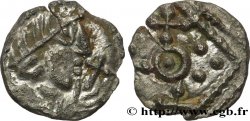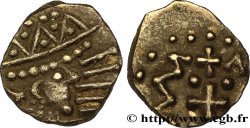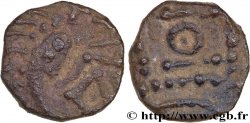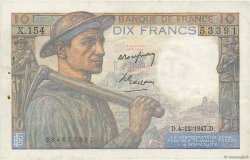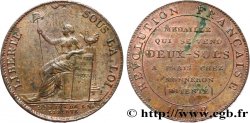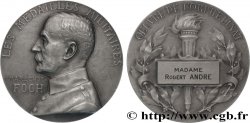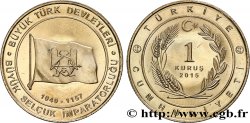bmv_786549 - ENGLAND - ANGLO-SAXONS Sceat à la tête casquée, série D, type 2c
650.00 €(Approx. 760.50$ | 565.50£)
Quantity
Add to your cart

Type : Sceat à la tête casquée, série D, type 2c
Date: c. 710-760
Mint name / Town : Frise, Domburg (Pays-Bas)
Metal : silver
Diameter : 12 mm
Orientation dies : 3 h.
Weight : 0,92 g.
Rarity : R2
Coments on the condition:
Très bel exemplaire, sur un flan presque quadrangulaire. Beau portrait centré. et revers de frappe particulièrement vigoureuse. Très fine patine grise, légèrement irisée par endroits
Catalogue references :
Obverse
Obverse legend : LÉGENDE RUNIQUE DEVANT LE VISAGE.
Obverse description : Tête stylisée à droite, une couronne radiée sur la tête ; les épaules cintrées formées d’un rang de perles entre deux traits parallèles.
Reverse
Reverse legend : LÉGENDES GÉOMÉTRIQUES.
Reverse description : Croix grecque bouletée, cantonnée de quatre globules ; légende autour.
Commentary
Ce type 2c de la série D se divise en deux, selon que le poids est lourd ou léger ; avec 0,92g, cet exemplaire est plutôt un exemplaire léger ! Le style est pourtant remarquable, ce qui le ferait se rapprocher des premières émissions. D. M. Metcalf fait pourtant remarquer qu'il existe des copies difficiles à reconnaître et que certaine monnaies officielles ont pourtant un style très “pauvre”.
Ce denier probablement frappé à Domburg, est repris comme “Continental runic type”.
This type 2c of the D series is divided into two, depending on whether the weight is heavy or light; with 0.92g, this example is rather a light example! The style is nevertheless remarkable, which would make it closer to the first issues. DM Metcalf nevertheless points out that there are copies that are difficult to recognize and that certain official coins have a very “poor” style. This denarius, probably struck in Domburg, is listed as “Continental runic type”
Ce denier probablement frappé à Domburg, est repris comme “Continental runic type”.
This type 2c of the D series is divided into two, depending on whether the weight is heavy or light; with 0.92g, this example is rather a light example! The style is nevertheless remarkable, which would make it closer to the first issues. DM Metcalf nevertheless points out that there are copies that are difficult to recognize and that certain official coins have a very “poor” style. This denarius, probably struck in Domburg, is listed as “Continental runic type”







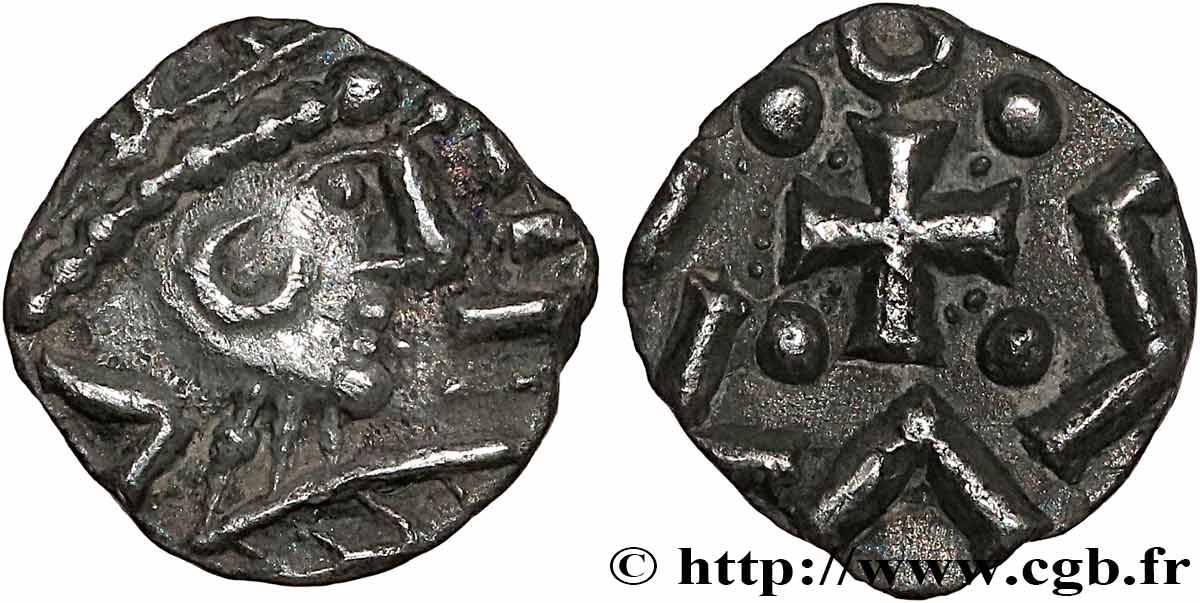
 Report a mistake
Report a mistake Print the page
Print the page Share my selection
Share my selection Ask a question
Ask a question Consign / sell
Consign / sell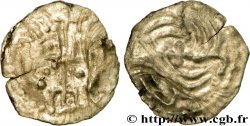
 Full data
Full data